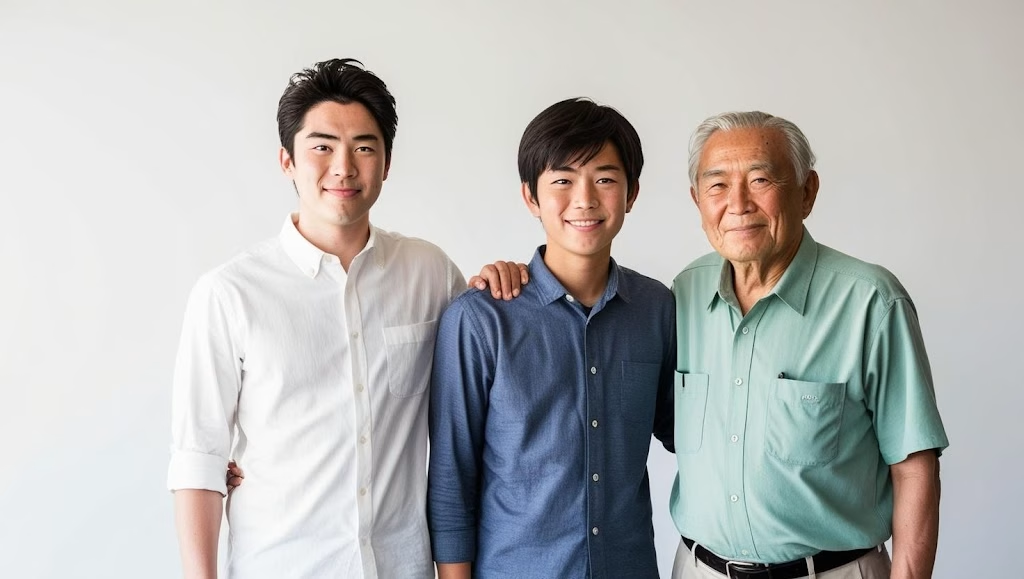In Japanese culture, hobbies are not just a way to fill spare time, but a way to balance a busy work life. For many Japanese working adults, hobbies are essential to maintaining mental and physical health. With long work routines and high pressure, hobbies are taken up as a way to relax, express oneself, and sometimes even as a means to learn something new. This article will discuss the various hobbies of Japanese working adults, including sports, golf, muscle training, cooking, general racing, gardening, music, language learning, DIY, and camping.
Key Points
Hobbies have become a way to achieve balance between busy work tasks and time for oneself for working adults in Japan.
Sports and physical activities help working adults maintain their health while reducing stress from tiring routines.
Gardening and cooking provide opportunities to connect with nature and family, as well as being a way to express creativity.
Music, language learning, and DIY are examples of hobbies of Japanese working adults that encourage self-improvement and creative potential.
Japanese Adult Working People's Hobbies Survey 2024
Quoted from PR TIMES, Odds Park Co., Ltd. conducted a questionnaire survey of 500 people out of 7,379 working adults who answered that they “voted in the public lottery” to convey new information and the appeal of the public lottery to many customers about new life-related hobbies for working adults in 2024 by Neo Marketing Co., Ltd.
Among those who answered “I have a hobby that I started after entering the workforce,” hobbies that are easy to start ranked first, with 14.4% of the votes saying “sports,” 12.6% of the votes saying “muscle training,” and 11.8% of the votes saying “cooking.” “Golf,” which has the impression that many people start after entering the workforce, ranked first with 13.9% of the votes, followed by “general racing” with 10.6% of the votes.

Sports: Maintaining Fitness and Mental Health
Sports are one of the hobbies of Japanese adult workers. Sports are one of the most popular hobbies among Japanese adult workers. Many choose to exercise after work, either at the gym or by taking other exercise classes. In Japan, sports are considered a way to maintain physical and mental health. Whether it is running, cycling, or joining a soccer club, sports can help relieve stress that develops in the workplace.
In recent years, exercise has become increasingly integrated with technology. Many workers use fitness apps to track their exercise routines. The emphasis on mental health has also contributed to the growing interest in relaxing sports such as yoga. Often, companies also support their employees to participate in sports activities to improve their health and productivity.
In some local communities, sports are a means of increasing socialization. Working adults often exercise with friends or coworkers. This activity not only helps build physical endurance, but also builds stronger relationships and reduces feelings of loneliness that can arise from monotonous work routines.
Golf: More Than Just a Sport
Golf is one of the hobbies of Japanese working adults. Golf in Japan is not just a sport; it is also a very important social aspect. Many working adults consider golf to be an effective medium for establishing business relationships and strengthening professional networks. Beautiful and well-maintained golf courses are ideal locations for interacting with colleagues and clients.
In Japan, golf is a highly organized activity. Many companies even provide training for their employees to become good at golf. In addition, golf tournaments are often held, and these are places where casual networking can take place. Business meetings often take place on golf courses, making golfing skills essential for adult workers in Japan.
In addition to the social and professional aspects, playing golf also provides health benefits. The activity of walking on a large golf course, coupled with time outdoors, is felt good for the body. Golf also offers mental challenges that strengthen concentration and discipline in its players.
Muscle Training: Building a Strong Body
Muscle training is one of the hobbies of Japanese adult workers. Many Japanese adult workers are becoming interested in muscle training because of its benefits in building a strong and healthy body. Muscle training, whether in a gym with heavy equipment or with your own body weight, is a good option for workers who do not have much time. It is an attractive alternative for those who want to stay fit but do not want to sacrifice too much time from work activities.
Adult workers are also beginning to realize the importance of physical health to support work performance. Regular muscle training helps improve stamina and endurance, which are highly valued in a busy work environment. With the support of fitness apps and social media, many people are motivated to share and appreciate their progress in muscle training on online platforms.
Gyms in Japan often have a positive atmosphere, where people from all walks of life support each other in achieving their fitness goals. In addition to the physical aspect, the camaraderie and moral support of those around you is an important part of the workout.
General Racing: A Deep Tradition
Public racing is one of the hobbies of Japanese working adults. Public racing, especially horse racing in Japan, has a rich history and is one of the popular hobbies of Japanese working adults. National horse racing events attract many visitors from various walks of life. On the day of the race, the atmosphere becomes very lively with people gathering to watch the horses compete. Spectators not only enjoy the race but also engage in betting, which provides a unique thrill.
Horse racing in Japan is also an opportunity for discussion and socializing. Many people use this activity as a way to gather with friends or family on the weekends. In addition, the industry is also economically profitable, with sponsorship, advertising, and gambling contributing to the country's income. Thus, horse racing is not just a sporting event, but an integral part of Japanese tradition and culture.
Cooking: Fun in the Kitchen
Cooking is one of the hobbies of Japanese adult workers. Cooking is a hobby that is growing rapidly among Japanese adult workers. They often turn to the kitchen after a long day at the office to express their creativity and relax. Cooking is not only done to meet food needs, but also as an artistic activity.
The concept of “shokubunka” or food culture in Japan is very diverse and rich. With many local ingredients and traditional cooking techniques available, many working adults are enthusiastic about learning to cook delicious and healthy food. In addition, many are also exploring new recipes, both from within and outside the country, to share with friends and family.
Cooking can also be a great way to bond with your loved ones. Cooking together is an opportunity to share stories and get to know each other better, and it is an experience that is highly valued in Japanese culture.
Gardening: Connection with Nature
Gardening is one of the hobbies of Japanese working adults. Gardening is a hobby that is recognized as one of the best ways to connect with nature, especially for working adults living in dense urban environments. Through gardening, they can find peace and relaxation while learning about various types of plants.
Gardening can also be done in limited spaces, such as balconies or inside the house using pots. The increasingly popular trend of urban gardening gives many people the opportunity to enjoy the results of the plants they care for, such as vegetables. This step is not only refreshing, but also provides its own satisfaction when seeing the plants grow well.
Through this hobby, Japanese working adults can experience the psychological benefits that come from farming, such as reducing stress and improving mood. It is also an affordable hobby that does not require much investment. The moment of harvesting the garden's produce is an experience that cannot be measured with money.
Music: Expression and Relaxation
Music is one of the hobbies of Japanese adult workers. Music is often the best escape for many Japanese adult workers. Whether as a listener or a player, music is an effective way to express emotions and relieve stress from everyday work. Many workers choose to learn a musical instrument, sing, or even participate in a music group.
Listening to music has also been integrated with modern technology. Many working adults use music streaming applications during their commute to work or while relaxing at home. The melody and lyrics of a song can provide enthusiasm and motivation to start or finish a work day.
In addition, many working adults find music a fascinating community where they can share their interests and get inspired. Every year, music festivals are held with thousands of people attending, making music not just a hobby, but also a cultural celebration.
Language Learning and DIY: Continuous Self-Improvement
Language learning and DIY are among the hobbies of Japanese working adults. Learning a new language has become an increasingly popular hobby among Japanese working adults. Many of them want to be able to communicate with clients or colleagues from abroad. With online courses and language learning apps readily available, more and more people are practicing foreign languages such as English.
Meanwhile, DIY is an option for those who are creative and enjoy working with their hands. They explore various projects such as making furniture, home decorations, or even crafts. This hobby provides a sense of accomplishment and builds self-confidence, especially when the results of one's handiwork are successfully transformed into useful items.
From learning languages to DIY, these two hobbies provide the opportunity to constantly improve yourself and create something new. Learning new things helps to strengthen your mind and can often open the way to new professional opportunities.
Camping: Connecting with Nature
Camping is one of the hobbies of Japanese working adults. While racing is a thrilling and adrenaline-filled activity, camping offers a more peaceful and refreshing experience for working adults in Japan. With many mountains, national parks, and campsites available, working adults often take time to get away to nature.
Camping is more than just sleeping in a tent; it is an opportunity to reconnect with nature, enjoy meals over a campfire, and have a moment of personal reflection away from the hustle and bustle of the city. Activities such as hiking, fishing, and exploring the surrounding scenery are common while camping. In addition, camping also encourages social interaction among participants, where they share stories or joy around the campfire. With the awareness of the importance of maintaining mental and physical health, camping is an ideal choice for working adults to recharge and return with renewed enthusiasm.
Conclusion
Japanese working adults’ hobbies play a significant role in maintaining their work-life balance and self-time. With a variety of choices, from sports to creative hobbies, each individual has a different way of filling their free time. Japanese working adults’ hobbies are not just activities, but also creating valuable moments, expanding knowledge, building relationships, and maintaining physical and mental health.
FAQ (Frequently Asked Questions)
Why are hobbies so important for Japanese working adults?
Hobbies help Japanese working adults reduce stress, improve mental and physical health, and build better social relationships.
What are some popular hobbies of Japanese working adults?
Popular hobbies of Japanese working adults include sports, golf, muscle training, cooking, gardening, music, language learning, and DIY.
How does sports help working adults in Japan?
Sports as a hobby of Japanese adult workers not only improves physical fitness but also reduces anxiety and improves mood, which is very beneficial for workers' mental health.
What are the benefits of learning a language for working adults?
Learning a new language as a hobby for Japanese working adults opens up professional opportunities, improves communication skills, and provides skills that can be applied in a global context.
















